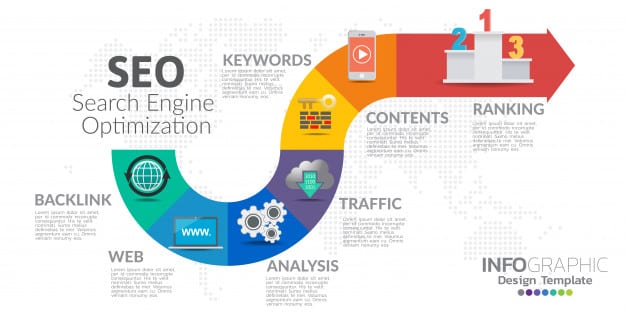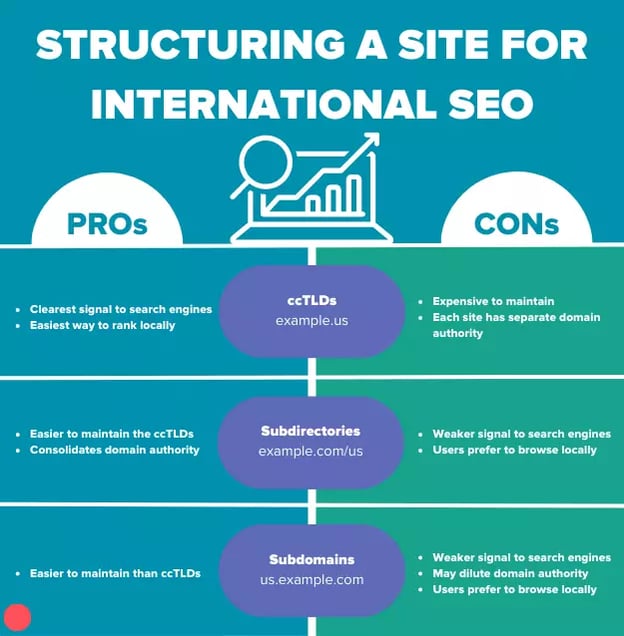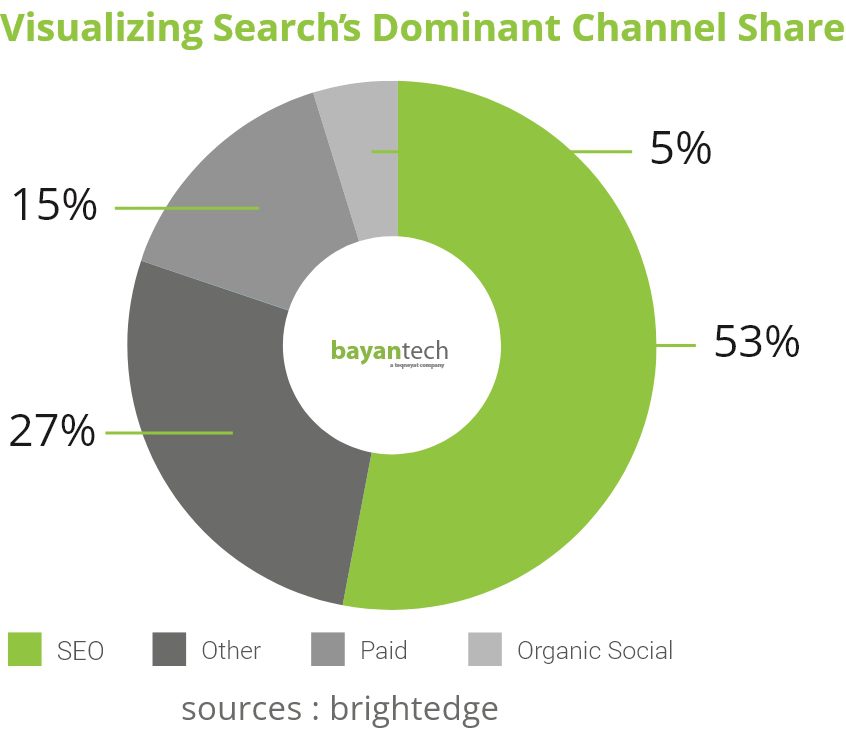Unlock the secrets of International SEO and watch your website soar to new global heights with our expert tips.

Image courtesy of via DALL-E 3
Table of Contents
- Introduction to International SEO
- Understanding Different Search Engines
- Keyword Research for International SEO
- Content Creation and Localization
- Technical SEO for International Sites
- Link Building Across Borders
- Measuring and Analyzing Success
- Common Challenges and Solutions
- Conclusion
- Frequently Asked Questions (FAQs)
Introduction to International SEO
Welcome to the world of International SEO, where we explore how websites can expand their reach globally by optimizing their presence on search engines. In simple terms, international SEO is all about making sure that your website shows up when people from different countries search for topics related to your business. By understanding international SEO, you can improve your website’s ranking and attract a global audience.
What is SEO?
SEO stands for Search Engine Optimization, which is a set of strategies and techniques used to make a website rank higher on search engine results pages. When someone searches for a specific keyword on a search engine like Google, the websites that appear at the top of the results are there because of good SEO practices.
Why Go International?
Expanding your SEO efforts to reach a global audience can have many benefits for your business. By targeting different countries, you can tap into new markets, increase your website’s visibility, and attract more visitors. International SEO allows you to connect with people from around the world who are interested in what you have to offer.
Understanding Different Search Engines
In the world of the internet, search engines play a vital role in helping us find information. But did you know that different countries use different search engines? Let’s explore the big players in the search engine world and how they have different rules.
The Big Players
When it comes to search engines, Google is a household name. It’s the most widely used search engine globally, dominating the market share in many countries. However, in China, Baidu is the go-to search engine, while in Russia, Yandex takes the lead.
Understanding the market share of these search engine giants is crucial for international SEO efforts. By optimizing your website according to the rules of these search engines, you can increase your chances of reaching a broader audience.
Different Rules
Each search engine has its own set of rules when it comes to optimization. For example, Google prioritizes websites with high-quality content and relevant keywords. Baidu, on the other hand, gives preference to websites hosted in China and written in Mandarin.
It’s essential to understand these differences and tailor your SEO strategies accordingly. By following the rules of each search engine, you can improve your website’s visibility and attract more visitors from around the world.
Keyword Research for International SEO
In the world of International SEO, keywords play a crucial role in helping your website get found by users searching in different languages and cultures. Keywords are the terms or phrases that people type into search engines when looking for information. By optimizing your content with the right keywords, you increase the chances of your website appearing at the top of search results.

Image courtesy of www.htmlgoodies.com via Google Images
Tools to Use
Conducting keyword research for international SEO requires specialized tools to find the most relevant terms for each target market. One such tool is the Google Keyword Planner, which helps you discover popular search queries in different languages and regions. By using these tools, you can uncover the best international keywords to incorporate into your content and improve your search engine rankings.
Content Creation and Localization
In the world of International SEO, creating and localizing content plays a vital role in reaching diverse global audiences. It’s not just about translating words; it’s about adapting your content to resonate with different cultures. Let’s dive into what content creation and localization entail.
What is Localization?
Localization goes beyond mere translation. It involves adapting your content to suit the cultural nuances, preferences, and sensitivities of your target audience. This means considering elements like language, imagery, symbols, colors, and even humor that may vary across different regions. By localizing your content, you enhance its relevance and appeal to diverse audiences worldwide.
Creating Relevant Content
When crafting content for an international audience, it’s essential to prioritize cultural relevance. Here are some tips to help you create content that resonates across borders:
1. Understand your audience: Research the cultural norms, values, and interests of your target market to tailor your content accordingly.
2. Use language effectively: Choose words and phrases that are not only accurately translated but also culturally appropriate. Avoid slang, idioms, or expressions that may not translate well.
3. Consider visuals: Images, videos, and graphics can have different meanings and interpretations in various cultures. Ensure your visual content aligns with the preferences of your international audience.
4. Adapt for SEO: Incorporate relevant keywords in your content that are commonly used in the target market’s language. This will not only help with SEO rankings but also ensure your content is easily discoverable by local audiences.
Technical SEO for International Sites
When expanding your website’s reach globally, it’s crucial to pay attention to the technical aspects of SEO to ensure your site ranks well in different countries. Let’s delve into two important technical considerations for international SEO: hreflang tags and mobile optimization.

Image courtesy of www.hubledigital.com via Google Images
Hreflang Tags
Hreflang tags are snippets of code that tell search engines which language and geographic audience each webpage is targeting. By implementing hreflang tags correctly, you can help search engines understand the language and geographic relevance of your content, ultimately improving your site’s visibility in international search results.
Mobile Optimization
With the majority of internet users accessing websites via mobile devices, optimizing your site for mobile is non-negotiable, especially for international audiences. Ensure that your site is responsive and loads quickly on mobile devices to provide a seamless user experience across different countries and languages.
Link Building Across Borders
In the world of SEO, link building plays a crucial role in improving a website’s ranking on search engines. But what exactly is link building, and how can you expand your reach globally through backlinks from international websites?
Why Backlinks Matter
Backlinks are like upvotes from other websites. When a reputable website links back to your site, search engines see it as a vote of confidence in your content. The more high-quality backlinks you have, the more authority your website gains in the eyes of search engines like Google.
Finding Opportunities
Building backlinks from international websites can be beneficial for reaching a global audience. One way to find link-building opportunities in different countries is through partnerships with other websites. Collaborating with international sites in your industry can help you gain valuable backlinks and expand your reach to new audiences.
Measuring and Analyzing Success
In the world of International SEO, it’s crucial to measure and analyze the success of your campaigns to understand what’s working and what needs improvement. By tracking key metrics and using analytics tools, you can ensure that your efforts are driving meaningful results and reaching your global audience effectively.

Image courtesy of bayan-tech.com via Google Images
Important Metrics
When it comes to measuring the success of your international SEO campaigns, there are several key metrics you should track. These metrics include:
- Traffic: Monitor the amount of traffic coming to your website from different countries to see which regions are responding well to your efforts.
- Conversions: Track the number of conversions, such as form submissions or sales, that are generated by your international SEO initiatives to gauge the effectiveness of your strategies.
- Keyword Rankings: Keep an eye on how well your chosen keywords are ranking in different countries to ensure your content is being found by the right audience.
Using Analytics Tools
To effectively measure and analyze the success of your international SEO campaigns, it’s important to leverage analytics tools like Google Analytics. These tools can provide valuable insights into your international performance, allowing you to track key metrics, identify trends, and make data-driven decisions to optimize your strategies.
Google Analytics, for example, offers features that enable you to segment your traffic by country, analyze user behavior on your site, and measure the impact of your SEO efforts on conversions. By utilizing these tools effectively, you can gain a deeper understanding of how your international audience is engaging with your website and tailor your SEO strategies accordingly.
Common Challenges and Solutions
One of the common challenges with international SEO is dealing with language barriers. When targeting global audiences, it’s essential to ensure that your website content is available in multiple languages to cater to users from different regions. Translation tools can be helpful in converting your content into various languages, but it’s crucial to remember that mere translation may not always suffice. Cultural nuances and language idioms can significantly impact how your content is perceived. Therefore, localization, which involves adapting content to fit the cultural context of a specific region, is key to overcoming language barriers in international SEO.
Country-Specific Regulations
Another challenge in international SEO is navigating country-specific regulations. Different countries have varying internet regulations that may affect how your website is accessed or displayed in certain regions. To ensure compliance and avoid penalties, it’s crucial to research and understand the specific regulations of the countries you are targeting. For instance, some countries may have restrictions on the type of content that can be displayed, while others may have data privacy laws that dictate how user information is handled. By staying informed and aligning your SEO strategies with local regulations, you can overcome this challenge and effectively reach your global audience.
Conclusion
International SEO is the key to unlocking a global audience for your website. By implementing the best practices discussed in this article, you can expand your reach beyond borders and connect with people from different cultures and languages. Let’s recap the main points we covered:

Image courtesy of bayan-tech.com via Google Images
Summary of Main Points
In the beginning, we delved into the world of international SEO, understanding its importance in reaching a global audience and improving search engine rankings. We learned about the different search engines like Google, Baidu, and Yandex, each with its own set of rules and market shares. Keyword research and localization were emphasized as crucial steps in creating content that resonates with international audiences.
Furthermore, we explored the technical aspects of international SEO, including hreflang tags and mobile optimization. Building backlinks from international sites and tracking success through analytics tools were highlighted as essential strategies. Lastly, we discussed common challenges like language barriers and country-specific regulations, offering practical solutions to overcome them.
Benefits of International SEO
Expanding your SEO efforts internationally can lead to increased visibility, traffic, and conversions for your website. By catering to diverse audiences and optimizing for different languages and cultures, you can stay ahead of the competition and establish a global presence online. International SEO opens up new opportunities for growth and success in the digital landscape.
Embrace the power of international SEO and watch your website soar to new heights on the global stage!
Want to turn these SEO insights into real results? Seorocket is an all-in-one AI SEO solution that uses the power of AI to analyze your competition and craft high-ranking content.
Seorocket offers a suite of powerful tools, including a Keyword Researcher to find the most profitable keywords, an AI Writer to generate unique and Google-friendly content, and an Automatic Publisher to schedule and publish your content directly to your website. Plus, you’ll get real-time performance tracking so you can see exactly what’s working and make adjustments as needed.
Stop just reading about SEO – take action with Seorocket and skyrocket your search rankings today. Sign up for a free trial and see the difference Seorocket can make for your website!
Frequently Asked Questions (FAQs)
Is International SEO necessary for my business?
Yes, implementing international SEO strategies is crucial for businesses looking to expand their reach and tap into global markets. By optimizing your website for international audiences, you can attract more visitors, increase brand visibility, and ultimately drive more sales. Without international SEO, your business may miss out on valuable opportunities to connect with customers worldwide.
How long does it take to see results?
The timeline for seeing results from international SEO efforts can vary depending on various factors such as the competitiveness of your industry, the quality of your optimization strategies, and the size of the target market. In general, it may take several months to start seeing significant improvements in your website’s visibility and rankings on search engines. Consistent and strategic SEO implementation is key to achieving long-term success in the international market.







